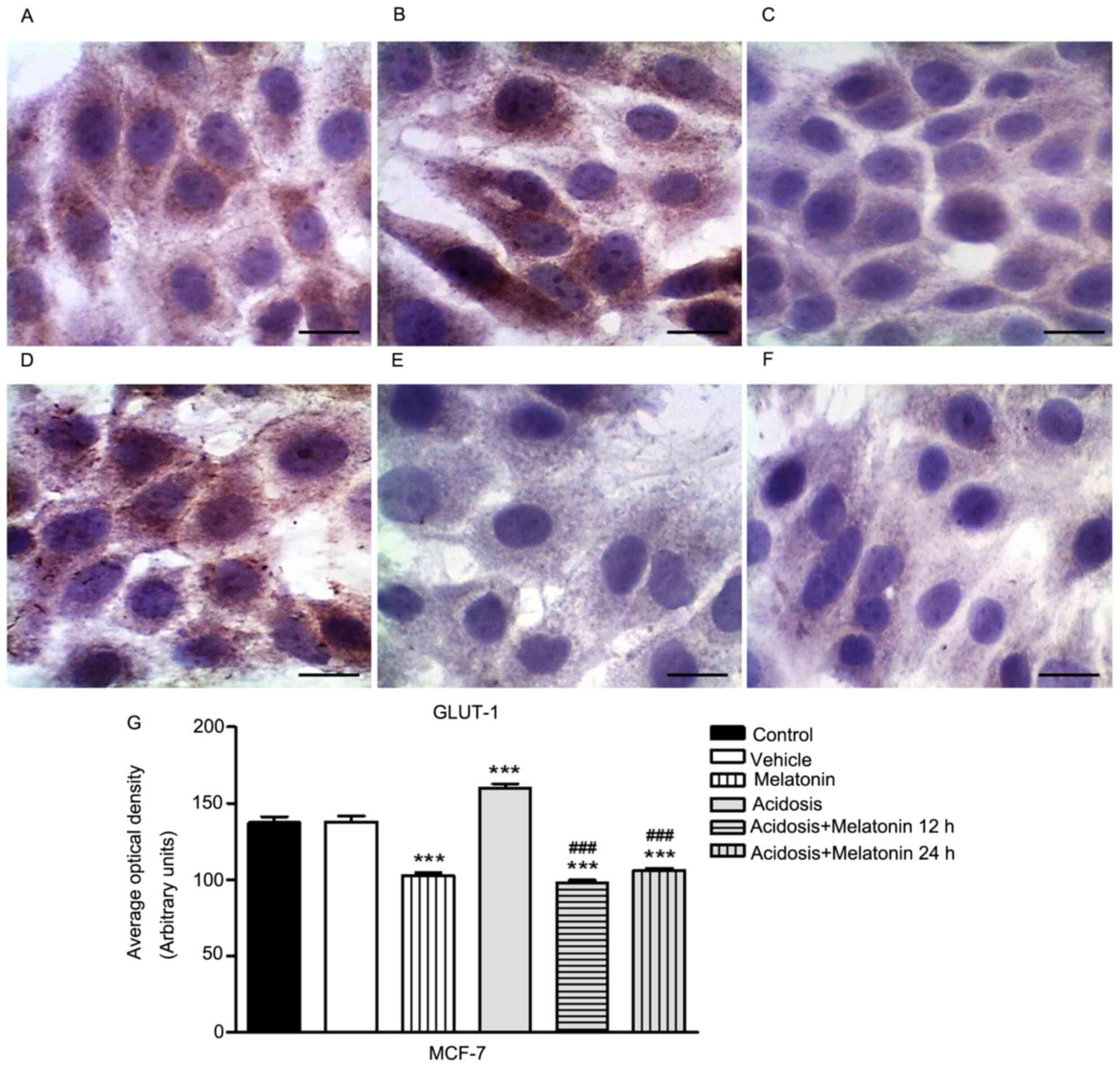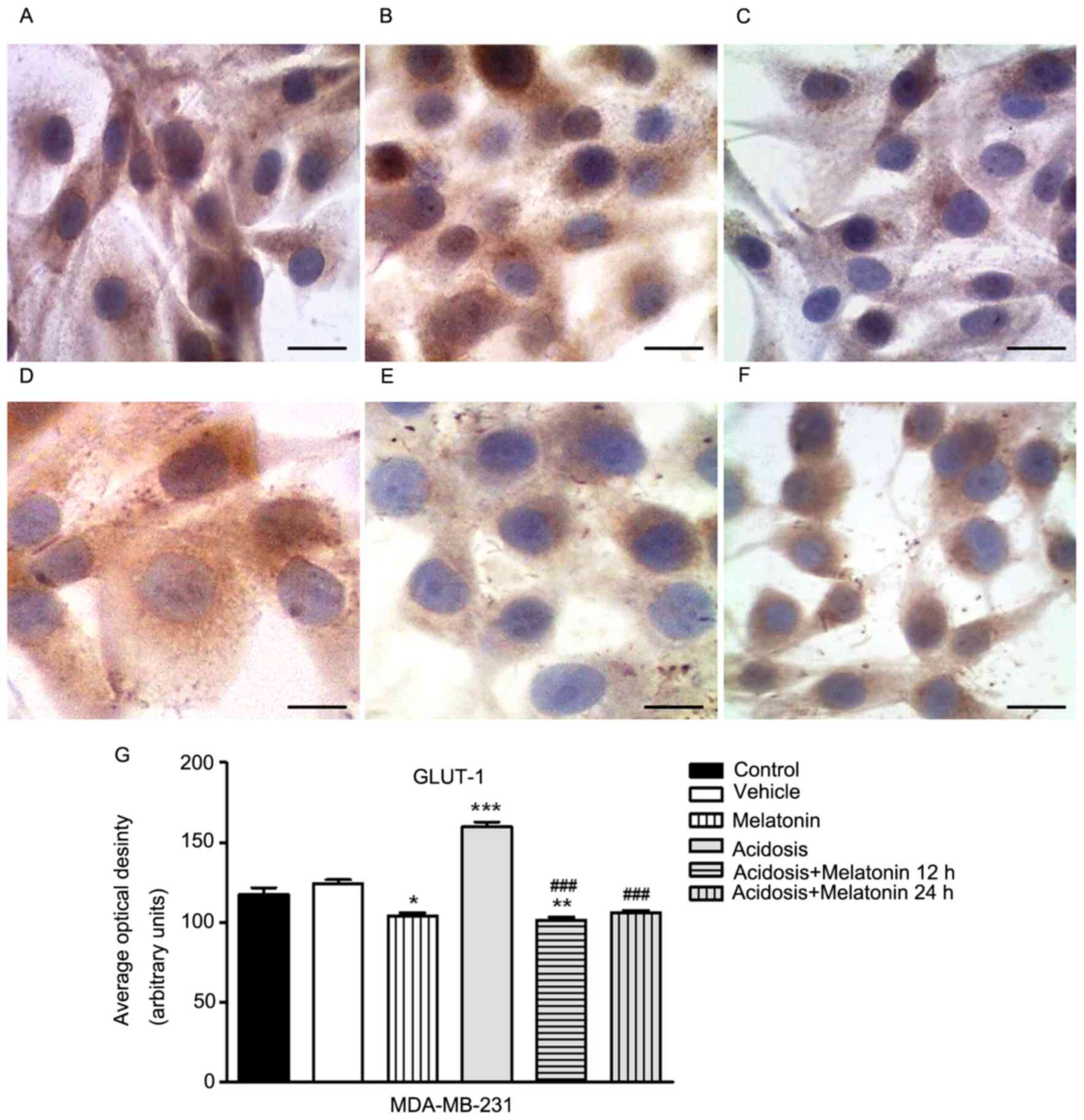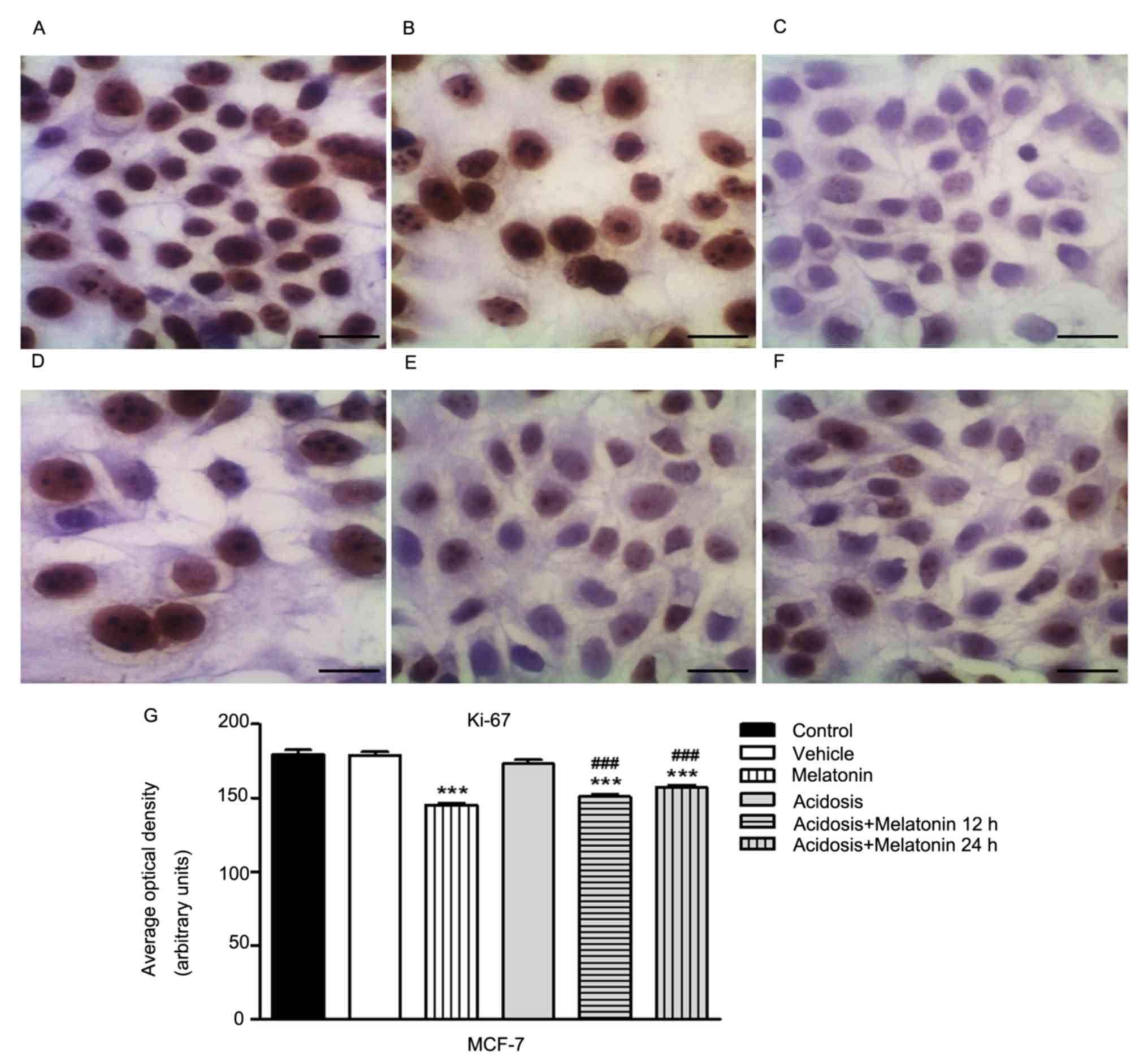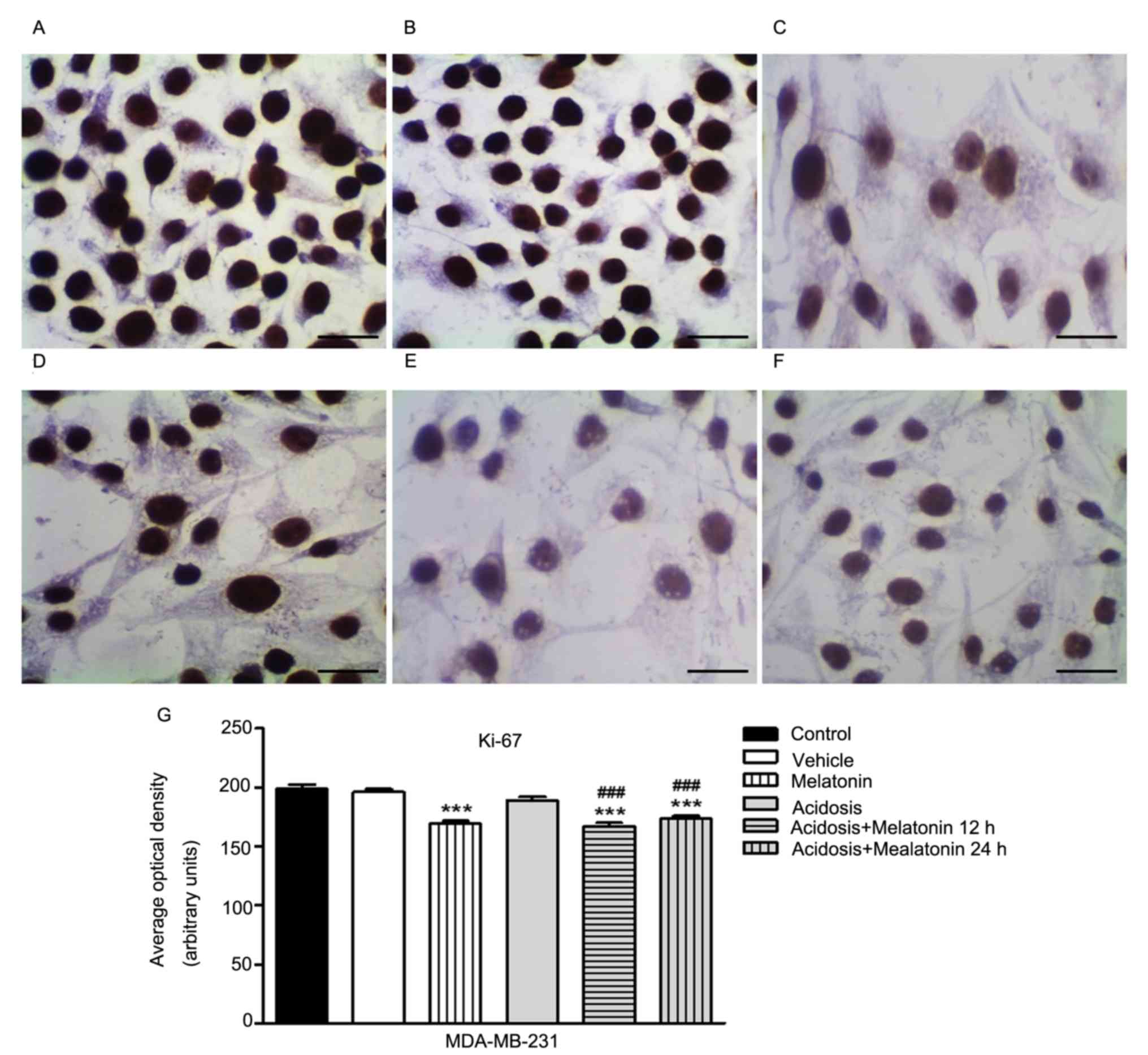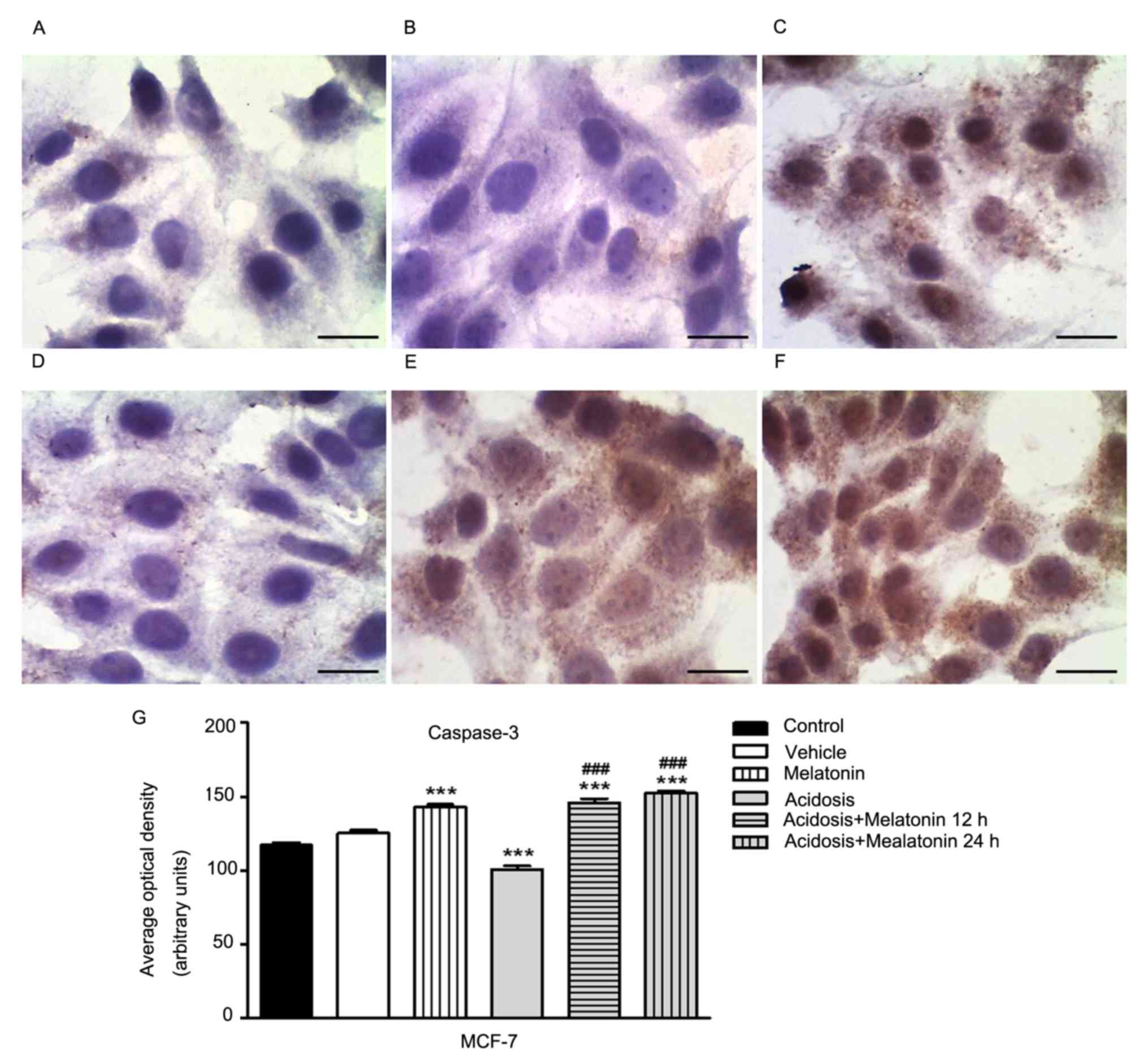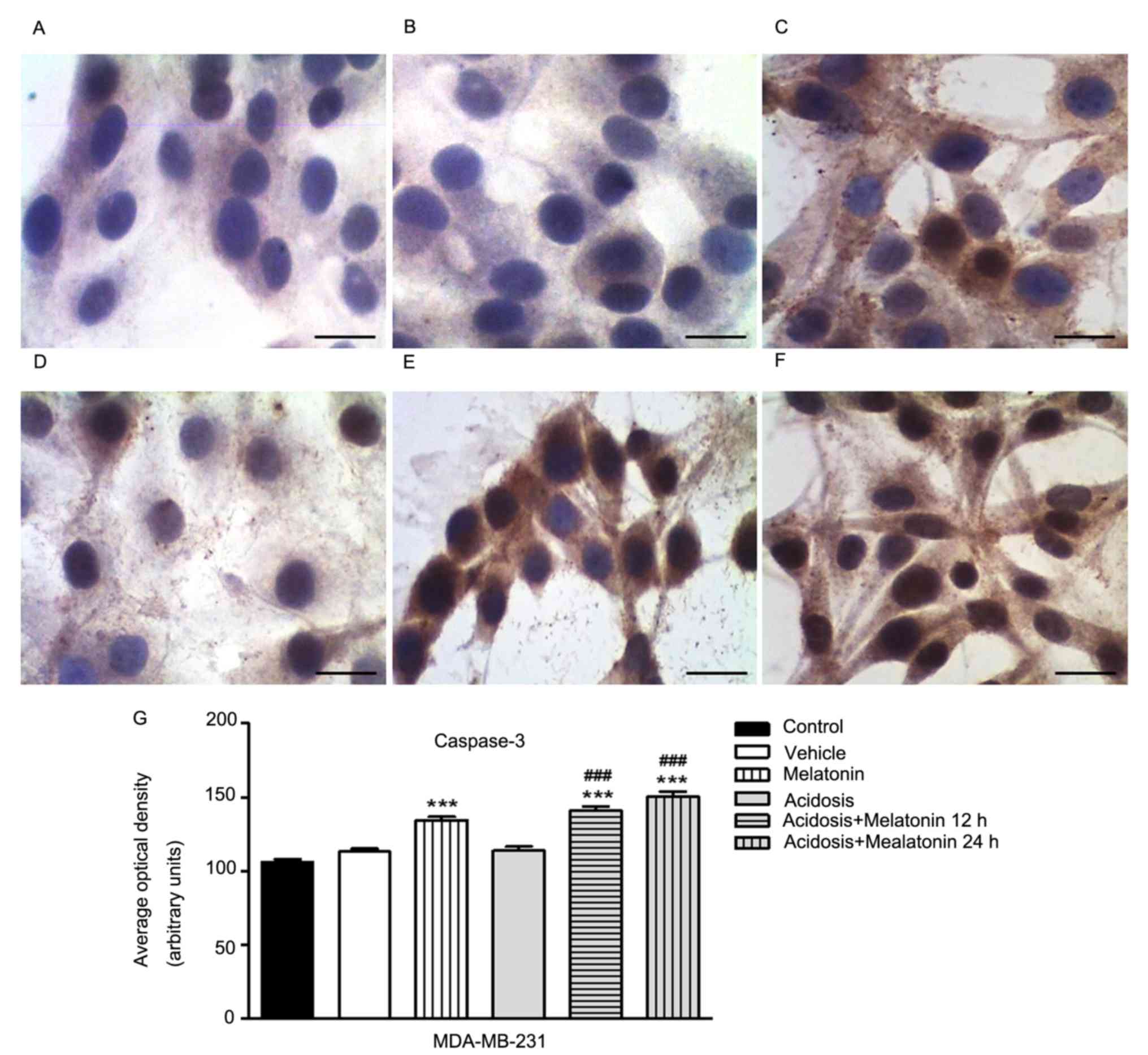|
1
|
Ferlay J, Parkin DM and Steliarova-Foucher
E: Estimates of cancer incidence and mortality in Europe in 2008.
Eur J Cancer. 46:765–781. 2010. View Article : Google Scholar : PubMed/NCBI
|
|
2
|
Stevens RG, Brainard GC, Blask DE, Lockley
SW and Motta ME: Breast cancer and circadian disruption from
electric lighting in the modern world. CA Cancer J Clin.
64:207–218. 2014. View Article : Google Scholar : PubMed/NCBI
|
|
3
|
Prat A and Perou CM: Deconstructing the
molecular portraits of breast cancer. Mol Oncol. 5:5–23. 2011.
View Article : Google Scholar : PubMed/NCBI
|
|
4
|
Engelhardt EG, Garvelink MM, de Haes JH,
van der Hoeven JJ, Smets EM, Pieterse AH and Stiggelbout AM:
Predicting and communicating the risk of recurrence and death in
women with early-stage breast cancer: A systematic review of risk
prediction models. J Clin Oncol. 32:238–250. 2014. View Article : Google Scholar : PubMed/NCBI
|
|
5
|
Gonzalez-Angulo AM, Morales-Vasquez F and
Hortobagyi GN: Overview of resistance to systemic therapy in
patients with breast cancer. Adv Exp Med Biol. 608:1–22. 2007.
View Article : Google Scholar : PubMed/NCBI
|
|
6
|
Hicks DG and Kulkarni S: Trastuzumab as
adjuvant therapy for early breast cancer: The importance of
accurate human epidermal growth factor receptor 2 testing. Arch
Pathol Lab Med. 132:1008–1015. 2008.PubMed/NCBI
|
|
7
|
Gralow J, Ozols RF, Bajorin DF, Cheson BD,
Sandler HM, Winer EP, Bonner J, Demetri GD, Curran W Jr, Ganz PA,
et al: Clinical cancer advances 2007: Major research advances in
cancer treatment, prevention, and screening-a report from the
American Society of Clinical Oncology. J Clin Oncol. 26:313–325.
2008. View Article : Google Scholar : PubMed/NCBI
|
|
8
|
Duffy MJ, O'Donovan N and Crown J: Use of
molecular markers for predicting therapy response in cancer
patients. Cancer Treat Rev. 37:151–159. 2011. View Article : Google Scholar : PubMed/NCBI
|
|
9
|
Hsiao YH, Chou MC, Fowler C, Mason JT and
Man YG: Breast cancer heterogeneity: Mechanisms, proofs, and
implications. J Cancer. 1:6–13. 2010. View
Article : Google Scholar : PubMed/NCBI
|
|
10
|
Lewis-Wambi JS and Jordan VC: Treatment of
postmenopausal breast cancer with Selective Estrogen Receptor
Modulators (SERMs). Breast Dis. 24:93–105. 2005-2006. View Article : Google Scholar
|
|
11
|
Dauchy RT, Xiang S, Mao L, Brimer S, Wren
MA, Yuan L, Anbalagan M, Hauch A, Frasch T, Rowan BG, et al:
Circadian and melatonin disruption by exposure to light at night
drives intrinsic resistance to tamoxifen therapy in breast cancer.
Cancer Res. 74:4099–4110. 2014. View Article : Google Scholar : PubMed/NCBI
|
|
12
|
Fernandes RC, Bevilacqua JL, Soares IC,
Siqueira SA, Pires L, Hegg R and Carvalho FM: Coordinated
expression of ER, PR and HER2 define different prognostic subtypes
among poorly differentiated breast carcinomas. Histopathology.
55:346–352. 2009. View Article : Google Scholar : PubMed/NCBI
|
|
13
|
Cao MD, Lamichhane S, Lundgren S, Bofin A,
Fjøsne H, Giskeødegård GF and Bathen TF: Metabolic characterization
of triple negative breast cancer. BMC Cancer. 14:9412014.
View Article : Google Scholar : PubMed/NCBI
|
|
14
|
Kaplan HG and Malmgren JA: Impact of
triple negative phenotype on breast cancer prognosis. Breast J.
14:456–463. 2008. View Article : Google Scholar : PubMed/NCBI
|
|
15
|
Qiu F, Chen YR, Liu X, Chu CY, Shen LJ, Xu
J, Gaur S, Forman HJ, Zhang H, Zheng S, et al: Arginine starvation
impairs mitochondrial respiratory function in ASS1-deficient breast
cancer cells. Sci Signal. 7:ra312014. View Article : Google Scholar : PubMed/NCBI
|
|
16
|
Justus CR, Sanderlin EJ and Yang LV:
Molecular connections between cancer cell metabolism and the tumor
microenvironment. Int J Mol Sci. 16:11055–11086. 2015. View Article : Google Scholar : PubMed/NCBI
|
|
17
|
Rundqvist H and Johnson RS: Tumour
oxygenation: Implications for breast cancer prognosis. J Intern
Med. 274:105–112. 2013. View Article : Google Scholar : PubMed/NCBI
|
|
18
|
Mekhail K, Gunaratnam L, Bonicalzi ME and
Lee S: HIF activation by pH-dependent nucleolar sequestration of
VHL. Nat Cell Biol. 6:642–647. 2004. View
Article : Google Scholar : PubMed/NCBI
|
|
19
|
Swietach P, Vaughan-Jones RD and Harris
AL: Regulation of tumor pH and the role of carbonic anhydrase 9.
Cancer Metastasis Rev. 26:299–310. 2007. View Article : Google Scholar : PubMed/NCBI
|
|
20
|
Maschio LB, Madallozo BB, Capellasso BA,
Jardim BV, Moschetta MG, Jampietro J, Soares FA and Zuccari DA:
Immunohistochemical investigation of the angiogenic proteins VEGF,
HIF-1α and CD34 in invasive ductal carcinoma of the breast. Acta
Histochem. 116:148–157. 2014. View Article : Google Scholar : PubMed/NCBI
|
|
21
|
Harris AL: Hypoxia-A key regulatory factor
in tumour growth. Nat Rev Cancer. 2:38–47. 2002. View Article : Google Scholar : PubMed/NCBI
|
|
22
|
Warburg O: On the origin of cancer cells.
Science. 123:309–314. 1956. View Article : Google Scholar : PubMed/NCBI
|
|
23
|
Yu L, Chen X, Wang L and Chen S: The sweet
trap in tumors: Aerobic glycolysis and potential targets for
therapy. Oncotarget. 7:38908–38926. 2016.PubMed/NCBI
|
|
24
|
Wu H, Ding Z, Hu D, Sun F, Dai C, Xie J
and Hu X: Central role of lactic acidosis in cancer cell resistance
to glucose deprivation-induced cell death. J Pathol. 227:189–199.
2012. View Article : Google Scholar : PubMed/NCBI
|
|
25
|
Xu K, Mao X, Mehta M, Cui J, Zhang C, Mao
F and Xu Y: Elucidation of how cancer cells avoid acidosis through
comparative transcriptomic data analysis. PLoS One. 8:e711772013.
View Article : Google Scholar : PubMed/NCBI
|
|
26
|
Gatenby RA, Gawlinski ET, Gmitro AF,
Kaylor B and Gillies RJ: Acid-mediated tumor invasion: A
multidisciplinary study. Cancer Res. 66:5216–5223. 2006. View Article : Google Scholar : PubMed/NCBI
|
|
27
|
De Milito A, Canese R, Marino ML, Borghi
M, Iero M, Villa A, Venturi G, Lozupone F, Iessi E, Logozzi M, et
al: pH-dependent antitumor activity of proton pump inhibitors
against human melanoma is mediated by inhibition of tumor acidity.
Int J Cancer. 127:207–219. 2010. View Article : Google Scholar : PubMed/NCBI
|
|
28
|
Stüwe L, Müller M, Fabian A, Waning J,
Mally S, Noël J, Schwab A and Stock C: pH dependence of melanoma
cell migration: Protons extruded by NHE1 dominate protons of the
bulk solution. J Physiol. 585:351–360. 2007. View Article : Google Scholar : PubMed/NCBI
|
|
29
|
Hill SM, Belancio VP, Dauchy RT, Xiang S,
Brimer S, Mao L, Hauch A, Lundberg PW, Summers W, Yuan L, et al:
Melatonin: An inhibitor of breast cancer. Endocr Relat Cancer.
22:R183–R204. 2015. View Article : Google Scholar : PubMed/NCBI
|
|
30
|
Coto-Montes A, Boga JA, Tan DX and Reiter
RJ: Melatonin as a potential agent in the treatment of sarcopenia.
Int J Mol Sci. 17(pii): E17712016. View Article : Google Scholar : PubMed/NCBI
|
|
31
|
Mediavilla MD, Sanchez-Barcelo EJ, Tan DX,
Manchester L and Reiter RJ: Basic mechanisms involved in the
anti-cancer effects of melatonin. Curr Med Chem. 17:4462–4481.
2010. View Article : Google Scholar : PubMed/NCBI
|
|
32
|
Nooshinfar E, Safaroghli-Azar A, Bashash D
and Akbari ME: Melatonin, an inhibitory agent in breast cancer.
Breast Cancer. 24:42–51. 2017. View Article : Google Scholar : PubMed/NCBI
|
|
33
|
Alvarez-García V, González A,
Alonso-González C, Martínez-Campa C and Cos S: Regulation of
vascular endothelial growth factor by melatonin in human breast
cancer cells. J Pineal Res. 54:373–380. 2013. View Article : Google Scholar : PubMed/NCBI
|
|
34
|
Mao L, Summers W, Xiang S, Yuan L, Dauchy
RT, Reynolds A, Wren-Dail MA, Pointer D, Frasch T, Blask DE and
Hill SM: Melatonin represses metastasis in Her2-postive human
breast cancer cells by suppressing RSK2 expression. Mol Cancer Res.
14:1159–1169. 2016. View Article : Google Scholar : PubMed/NCBI
|
|
35
|
Jardim-Perassi BV, Arbab AS, Ferreira LC,
Borin TF, Varma NR, Iskander AS, Shankar A, Ali MM and de Campos
Zuccari DA: Effect of melatonin on tumor growth and angiogenesis in
xenograft model of breast cancer. PLoS One. 9:e853112014.
View Article : Google Scholar : PubMed/NCBI
|
|
36
|
Gatenby RA, Smallbone K, Maini PK, Rose F,
Averill J, Nagle RB, Worrall L and Gillies RJ: Cellular adaptations
to hypoxia and acidosis during somatic evolution of breast cancer.
Br J Cancer. 97:646–653. 2007. View Article : Google Scholar : PubMed/NCBI
|
|
37
|
Borin TF, Arbab AS, Gelaleti GB, Ferreira
LC, Moschetta MG, Jardim-Perassi BV, Iskander AS, Varma NR, Shankar
A, Coimbra VB, et al: Melatonin decreases breast cancer metastasis
by modulating Rho-associated kinase protein-1 expression. J Pineal
Res. 60:3–15. 2016. View Article : Google Scholar : PubMed/NCBI
|
|
38
|
Gonçalves Ndo N, Colombo J, Lopes JR,
Gelaleti GB, Moschetta MG, Sonehara NM, Hellmén E, Zanon Cde F,
Oliani SM and Zuccari DA: Effect of melatonin in epithelial
mesenchymal transition markers and invasive properties of breast
cancer stem cells of canine and human cell lines. PLoS One.
11:e01504072016. View Article : Google Scholar : PubMed/NCBI
|
|
39
|
Wojtkowiak JW, Rothberg JM, Kumar V,
Schramm KJ, Haller E, Proemsey JB, Lloyd MC, Sloane BF and Gillies
RJ: Chronic autophagy is a cellular adaptation to tumor acidic pH
microenvironments. Cancer Res. 72:3938–3947. 2012. View Article : Google Scholar : PubMed/NCBI
|
|
40
|
Macheda ML, Rogers S and Best JD:
Molecular and cellular regulation of glucose transporter (GLUT)
proteins in cancer. J Cell Physiol. 202:654–662. 2005. View Article : Google Scholar : PubMed/NCBI
|
|
41
|
Oliver RJ, Woodwards RT, Sloan P, Thakker
NS, Stratford IJ and Airley RE: Prognostic value of facilitative
glucose transporter Glut-1 in oral squamous cell carcinomas treated
by surgical resection; Results of EORTC Translational Research Fund
studies. Eur J Cancer. 40:503–507. 2004. View Article : Google Scholar : PubMed/NCBI
|
|
42
|
Suganuma N, Segade F, Matsuzu K and Bowden
DW: Differential expression of facilitative glucose transporters in
normal and tumour kidney tissues. BJU Int. 99:1143–1149. 2007.
View Article : Google Scholar : PubMed/NCBI
|
|
43
|
Hevia D, González-Menéndez P,
Quiros-González I, Miar A, Rodríguez-García A, Tan DX, Reiter RJ,
Mayo JC and Sainz RM: Melatonin uptake through glucose
transporters: A new target for melatonin inhibition of cancer. J
Pineal Res. 58:234–250. 2015. View Article : Google Scholar : PubMed/NCBI
|
|
44
|
Hill SM and Blask DE: Effects of the
pineal hormone melatonin on the proliferation and morphological
characteristics of human breast cancer cells (MCF-7) in culture.
Cancer Res. 48:6121–6126. 1988.PubMed/NCBI
|
|
45
|
Cos S and Sánchez-Barceló EJ: Melatonin
and mammary pathological growth. Front Neuroendocrinol. 21:133–170.
2000. View Article : Google Scholar : PubMed/NCBI
|
|
46
|
Chottanapund S, Van Duursen MB, Navasumrit
P, Hunsonti P, Timtavorn S, Ruchirawat M and Van den Berg M:
Anti-aromatase effect of resveratrol and melatonin on hormonal
positive breast cancer cells co-cultured with breast adipose
fibroblasts. Toxicol In Vitro. 28:1215–1221. 2014. View Article : Google Scholar : PubMed/NCBI
|
|
47
|
Liu YX, Wang KR, Xing H, Zhai XJ, Wang LP
and Wang W: Attempt towards a novel classification of
triple-negative breast cancer using immunohistochemical markers.
Oncol Lett. 12:1240–1256. 2016. View Article : Google Scholar : PubMed/NCBI
|
|
48
|
Czeczuga-Semeniuk, Wołczyński S, Anchim T,
Dziecioł J, Dabrowska M and Pietruczuk M: Effect of melatonin and
all-trans retinoic acid on the proliferation and induction of the
apoptotic pathway in the culture of human breast cancer cell line
MCF-7. Pol J Pathol. 53:59–65. 2002.PubMed/NCBI
|
|
49
|
Danielczyk K and Dziegiel P: The
expression of MT1 melatonin receptor and Ki-67 antigen in melanoma
malignum. Anticancer Res. 29:3887–3895. 2009.PubMed/NCBI
|
|
50
|
Danielczyk K and Dziegiel P: MT1 melatonin
receptors and their role in the oncostatic action of melatonin.
Postepy Hig Med Dosw (Online). 63:425–434. 2009.(In Polish).
PubMed/NCBI
|
|
51
|
Perdomo J, Cabrera J, Estévez F, Loro J,
Reiter RJ and Quintana J: Melatonin induces apoptosis through a
caspase-dependent but reactive oxygen species-independent mechanism
in human leukemia Molt-3 cells. J Pineal Res. 55:195–206. 2013.
View Article : Google Scholar : PubMed/NCBI
|
|
52
|
Chen X, Duan N, Zhang C and Zhang W:
Survivin and tumorigenesis: Molecular mechanisms and therapeutic
strategies. J Cancer. 7:314–323. 2016. View Article : Google Scholar : PubMed/NCBI
|
|
53
|
Grasl-Kraupp B, Ruttkay-Nedecky B,
Koudelka H, Bukowska K, Bursch W and Schulte-Hermann R: In situ
detection of fragmented DNA (TUNEL assay) fails to discriminate
among apoptosis, necrosis, and autolytic cell death: A cautionary
note. Hepatology. 21:1465–1468. 1995. View Article : Google Scholar : PubMed/NCBI
|
















